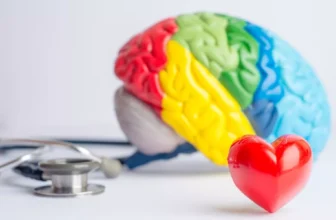
Regular physical activity not only strengthens your body but also plays a crucial role in shaping your mental well-being. The connection between exercise and your mind goes beyond just physical health; it directly impacts your mood, stress levels, and overall emotional state. As you engage in different forms of exercise, various neurotransmitters and hormones are at play, influencing how you feel and think. So, how exactly does this intricate dance between exercise and mental well-being unfold?
Physical Exercise and Stress Reduction
Engaging in regular physical activity can significantly reduce stress levels and promote mental well-being. When you exercise, your body releases endorphins, which are chemicals that act as natural painkillers and mood elevators. These endorphins help to lower stress hormones like cortisol, leading to a decrease in feelings of anxiety and tension.
Physical exercise also provides a distraction from daily worries and allows you to focus on the present moment. By concentrating on your body's movements and the physical sensations you experience during exercise, you can temporarily shift your attention away from stressors and negative thoughts. This mental break can help refresh your mind and provide a much-needed break from the pressures of daily life.
Moreover, engaging in physical activity regularly can improve your sleep quality, which is essential for managing stress and maintaining good mental health. Better sleep can enhance your ability to cope with challenges and regulate your emotions effectively. By incorporating exercise into your routine, you can cultivate a healthier mindset and reduce the impact of stress on your mental well-being.
Exercise and Mood Enhancement
How does exercise impact your mood and emotional well-being?
Engaging in physical activity has a direct influence on your mood, leading to enhanced emotional well-being. When you exercise, your body releases endorphins, often referred to as the 'feel-good' hormones. These endorphins interact with receptors in your brain, reducing your perception of pain and triggering a positive feeling in the body. As a result, you may experience a sense of euphoria commonly known as the 'runner's high.'
Moreover, regular exercise can help alleviate symptoms of depression and anxiety. By incorporating physical activity into your routine, you provide your brain with a natural way to combat feelings of sadness and stress. Exercise also offers a distraction from negative thoughts, allowing you to focus on the present moment and your physical sensations.
Additionally, the sense of accomplishment and improved self-esteem that comes with reaching fitness goals can further boost your mood and overall emotional well-being. So, the next time you're feeling down, consider going for a workout to uplift your spirits and enhance your mood.
The Relationship Between Exercise and Anxiety
Exercise plays a crucial role in managing and reducing anxiety levels in individuals. When you engage in physical activity, your body releases endorphins, which are neurotransmitters known to improve mood and reduce feelings of stress and anxiety. Regular exercise can act as a natural anxiety relief mechanism, helping you cope with daily stressors more effectively.
Moreover, physical activity promotes better sleep patterns, which are often disrupted by anxiety. By getting an adequate amount of sleep, you can improve your overall mental well-being and better manage anxious thoughts and feelings. Exercise also provides a healthy outlet for releasing built-up tension and pent-up energy, helping to prevent the escalation of anxiety symptoms.
Incorporating exercise into your routine can enhance your self-esteem and confidence, contributing to a more positive self-image. By taking care of your physical health through exercise, you're also nurturing your mental well-being, creating a more balanced and resilient mindset to combat anxiety.
Boosting Self-Esteem Through Physical Activity
Improving your self-esteem can be significantly influenced by staying physically active. Engaging in regular exercise helps you feel more confident in your own skin. As you work out, your body releases endorphins, often referred to as 'feel-good' hormones, which can boost your mood and overall sense of well-being. When you challenge yourself physically and see improvements in your strength, endurance, or flexibility, it can translate into a positive impact on how you perceive yourself.
Physical activity also offers a sense of accomplishment. Setting fitness goals and achieving them can give you a sense of pride and empowerment, reinforcing your belief in your capabilities. Additionally, regular exercise can improve your physical appearance, which may lead to increased self-assurance and a more positive body image. Feeling strong and healthy can contribute to a greater sense of self-worth.
Incorporating exercise into your routine not only benefits your physical health but also plays a crucial role in enhancing your self-esteem. By prioritizing regular physical activity, you're investing in your mental well-being and fostering a more positive self-perception.




